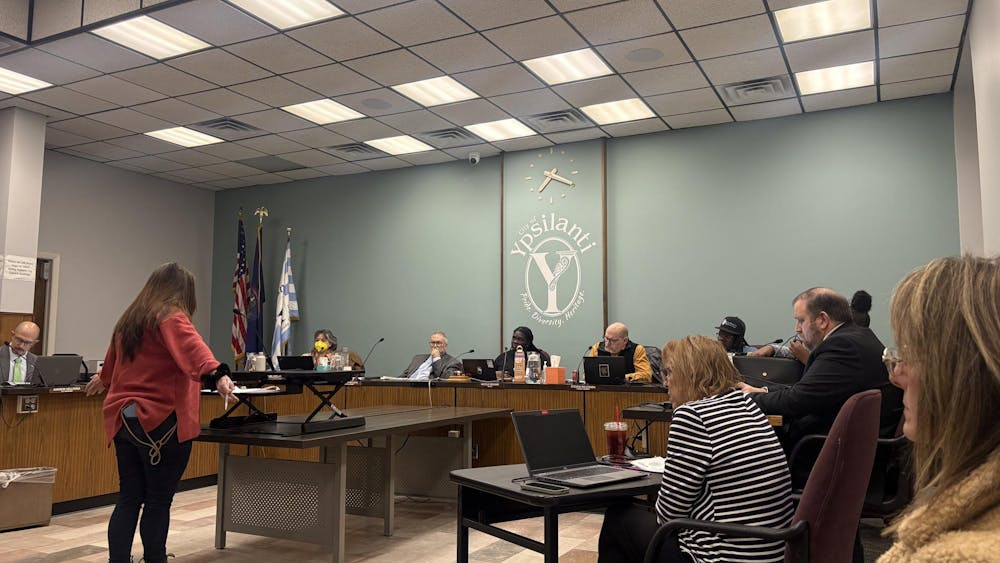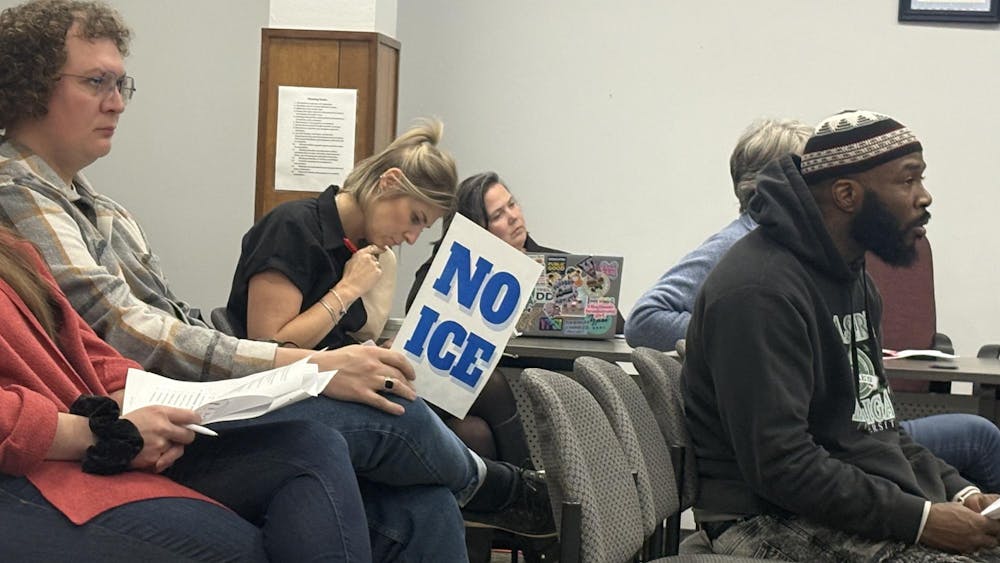Chief Information Officer Carl R. Powell held a question-and-answer session last Thursday in the Student Center about technology at Eastern Michigan University.
The conversation, tagged “Coffee with the CIO,” was open to all and gave people the opportunity to ask questions centered on the development of IT at EMU.
Powell explained what the IT department responsibilities are.
“Part of what we do includes providing you with computers in the computer labs, making sure all the systems are up and running, replacing old systems with new ones and updating the software,” he said. “In reality, the most part of our job is what people don’t necessarily get to see— like expanding wireless Internet into every dorm and apartment, which is one of our current project.”
Powell was asked what new projects he was anticipating on implementing now he is the CIO.
“I go by this, ‘Do no harm when you arrive,’ ” he said. “Before you leap into implementing new things, you must make sure you know how things work, what are some things happening in higher education in relation to IT and mostly where do we want to be in technology in five years with the available infrastructure.
“Although I have some thoughts, we also have to realize that there are a lot of smart people in the division, so, what are we doing to pull their thoughts in?” Powell said. “Like I said, the current project we are working on is expansion of wireless Internet services to every dorm and apartment, and after Mark Jefferson and Pray-Harrold buildings are renovated, we will be there to support the computing and electrical needs of the students.”
He also talked about training the employees, which is imperative to teach them how to take each step. This could reduce errors and prepare the employees when they get out there after graduating.
Powell was asked if the IT department has faced any unforeseen challenges.
“Do we have challenges, of course we do,” he said. “Are they things we expected and is there room for growth, yes to both.”
In an interview with Powell after the event, he was asked about the recent EagleMail outage, what caused it and what ways they planned on averting that from happening again.
“This problem was outsourced,” he said. “Merit is a statewide service provider and they deal with our networking between multiple schools. There is something they call ‘MeritMail.’ They host us and we pay them to use it, which is why we have EagleMail.”
“When the disk storage had a hardware failure it affected all schools using MeritMail as its host, so they had work with HP temporarily for their new hardware to be shipped,” Powell said. “What we are currently working on, in regards to this, is how we can have two parts of something whereby if one stops working, it could be replaced immediately with the other whilst repairing the faulty one.”
He also urges more students to get involved in technology.
“Given that technology is invasive, all you need to know is your discipline, then technology just enhances,” Powell said “There is almost no class you take in school these days that does not involve technology. For instance, let’s take a music class where a teacher plays a trumpet; he would need software that would interpret the notes to make it apprehensible for the rest of the class.”
“People also spend more time on social interaction, which is one of the reasons why gaming and simulation, are the fastest growing technology for safety events”
He then discussed events that create more student involvement.
“Although we have a sizeable IT division, ways we tend to get more students involved is through Undergraduate Symposiums, where, for instance, new students can see what outgoing student have worked on,” Powell said.
“This gives them a visual conception on what is ahead. Students can also ask questions, not just from other students but also from faculty staffs because they are willing to work with students.”







